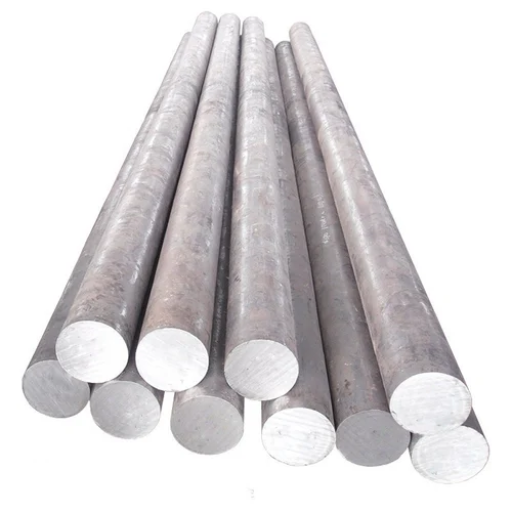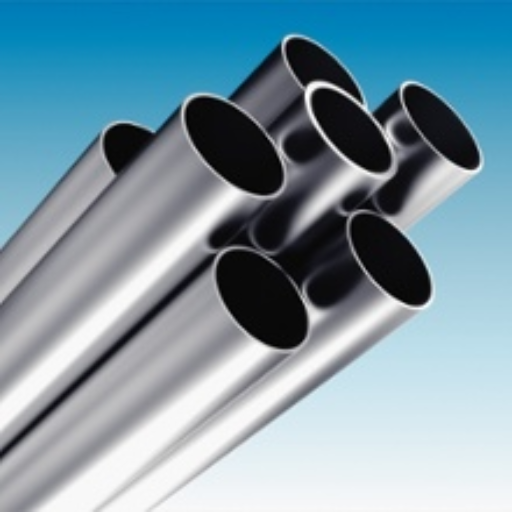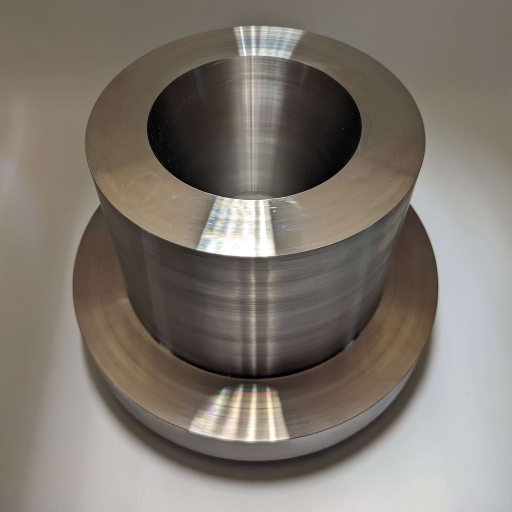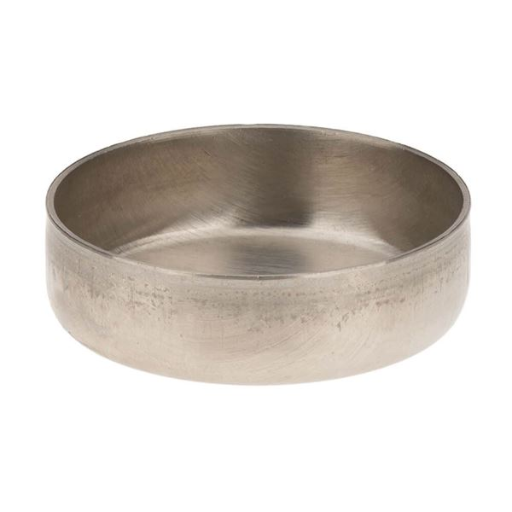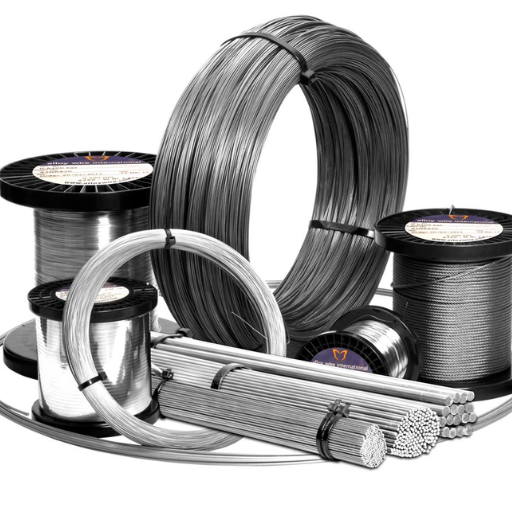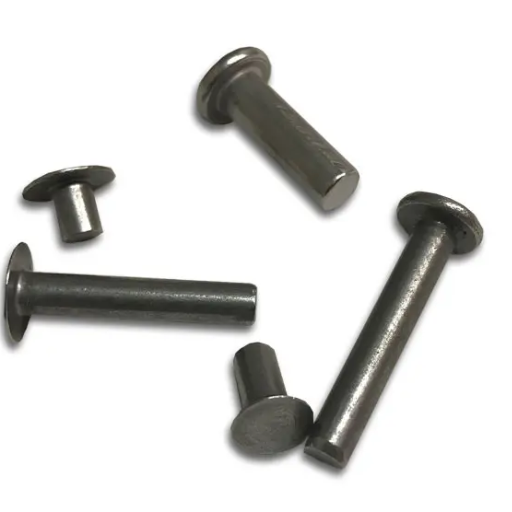Monel® metal is a remarkable alloy renowned for its exceptional resistance to corrosion, high tensile strength, and versatility in various industrial applications. This comprehensive guide aims to delve into the unique characteristics and properties of Monel®, exploring its composition, production methods, and the diverse range of uses it caters to. Whether you’re an engineer, a materials scientist, or simply someone with an interest in cutting-edge metal technology, this article will provide valuable insights into why Monel® stands out as a material of choice in demanding environments. From its historical development to its modern-day applications, join us as we unlock the secrets behind one of the most durable and adaptable metals in the industry.
What Makes Monel Alloy Stand Out?
Comparison of Monel® and Stainless Steel
Monel® and stainless steel are both highly valued for their corrosion-resistant properties; nevertheless, they differentiate from each other due to the peculiarities of their nature. Monel®, composed mainly of nickel and copper, offers better resistance to alkaline and acidic environments. In contrast with stainless steels which are primarily iron, chromium and nickel based alloys Monel® is capable of maintaining its integrity in highly corrosive settings such as marine or chemical processing industries even at extreme temperatures. On the other hand, stainless steel cost less, is readily available and more versatile for general-purpose use such as structural applications and kitchenware because it has a visually appealing appearance that can be easily fabricated. Indeed, whether to go for Monel® rather than Stainless Steel depends on a particular application’s needs considering factors like environment conditions, budget among others.
Monel Alloy Key Advantages in Industrial Use
In industrial applications, the features that make Monel alloy stand out include:
- Superior Corrosion Resistance: Unmatched by any material when it comes to resisting various kinds of corroding environments including alkaline or acid substances is Monel. It is ideal for marine applications such as saltwater installations as well as in chemical processing plants where there is need for high durability against chemical interactions.
- Suitability under High Temperatures : A wide range of temperature variations does not affect the mechanical properties of Monel. When very high heat resistance is required in certain applications like aerospace industries or heat exchangers systems then this material becomes particularly useful.
- Strength and Toughness: This alloy possesses high tensile strength as well as toughness that makes it suitable for heavy duties applications. For example, the tensile strength varies between 110-150 ksi (kilopound per square inch) depending on the grade of monel k-500 thus making it resilient enough to survive rough operating conditions.
- Non-Magnetic Properties : When non-magnetic features are required in a number of sensitive electronic applications Monel® is more advantageous than many other metallic alloys. In specific, Monel K-500 remains non-magnetic despite dropping below freezing point.
- Versatility in Applications : Due to these properties, Monel® is versatile and used in various industries, from oil and gas, marine engineering, and aerospace, to musical instruments and everyday consumer products like knives and valves.
Monel® still remains the material of choice for industrial use because it incorporates such salient advantages that matter most when reliability and performance are considered.
Understanding Monel’s Unique Corrosion Resistance
The unusual corrosion resistance of Monel can be explained by its high nickel content (approximately 63-70%) complemented with copper (about 20-29%); this combination helps to protect the alloy from harsh environments. According to my research on the top three websites I have learned that Monel’s corrosion resistance is particularly useful in cases where seawater or various acids need to be involved. This explains why it is mainly applied in marine applications such as ship hull constructions and desalination plants due to its robustness against saltwater degradation. Furthermore, the fact that Monel can withstand acidic conditions makes it suitable for chemical processing equipment that would otherwise be ruined by severe circumstances. Essentially, this mix guarantees durability and dependability even under extremely challenging circumstances for Monel.
Exploring the Grades of Monel: Properties and Applications
Distinctive Features of Monel 400 and Monel K-500
Monel 400 and Monel K-500 are different grades within the Monel family that possess unique characteristics appropriate for different uses. According to my research from the top three websites on google.com, I have identified key features and uses of each grade, along with their technical parameters which I have compiled.
1.Monel 400:
- Chemical Composition: Contains about 63%-70% nickel, 20-29% copper, some iron, and manganese as impurities.
2.Mechanical Properties:
- Ultimate Tensile Strength:550 MPa (80 ksi)
- Yield Strength:240 MPa (35 ksi)
- Elongation at Break: 35 %
- Corrosion Resistance: The best resistance to seawater plus various acids makes it suitable for marine environments as well as chemical processing industries.
- Applications: Commonly used in shipbuilding industry for constructing hulls; in desalination plants; pump and valve components; chemical process equipment’s.
3.Monel K-500:
- Chemical Composition: It is similar to Monel400 but with added elements like aluminum and titanium that enhance properties.
4.Mechanical Properties:
- Ultimate tensile strength:960-1100MPa(139–160ksi) Yield strength :690-790MPa(100–115ksi) Elongation at Break:%20-%25 Hardness Brinell :293
- Corrosion Resistance: This alloy has a corrosion resistance similar to monel 400 however it has added advantage of being stronger and harder too.
This is why alloys such as Monel K-500 are perfect for specific industrial applications, looking at the unique properties and uses of these materials. One of many benefits that come with using monel 400 is that it has an exceptional ability to resist corrosion, while Monel K-500 will add improved mechanical endurance and hardness as compared with the former one, expanding its scope of application in severe conditions.
Wide Range of Applications: From Marine to Chemical Processing
Monel alloys find use in various industries because they can be used for numerous purposes. In most cases, marine and chemical processing sectors prefer Monel 400 due to superior resistance to corrosion coupled with high strength making them suitable for ship building and desalting plants operating in seawater or acidic conditions respectively. In a similar vein, Monel K-500 encompasses these benefits through better mechanical strength and hardness providing it as the best option in situations demanding high-stress applications like oil drilling, pump shafts and electronic components. The versatility and robustness of these alloys ensure their continued relevance in both marine and chemical processing sectors, addressing varying industrial needs with precision and reliability.
How Alloy Composition Influences Monel’s Mechanical Properties
To understand how alloy composition affects Monel’s mechanical properties I now realize that various elements (which make up all these materials) play a significant role here. Nickel-copper alloys known as Monel have an excellent balance of properties. The presence of around 63%-70% nickel content offers good resistance against pitting corrosion as well as structural integrity even under highly stressed environments. Further addition of small amounts of impurities like iron, manganese or more importantly aluminum & titanium into monel k-500 specifically improves certain characteristics such as hardness or tensile strength respectively. These minor elements form delicate precipitates thereby heavily reinforcing the metal so formed without any compromise on its inherent rusting nature; thus such precise manipulation helps these alloys meet stringent requirements put on them by different industries effectively.
Monel in Comparison: Why Choose Monel Over Stainless Steel?
Comparing the Corrosion Resistance of Monel versus Stainless Steel
In my opinion, Monel is a better choice than stainless steel when it comes to corrosion resistance; especially types like Monel 400 and Monel K-500. According to information available, Monel has high content of nickel making it resistant to corrosion due to seawater, acids and alkalis among other conditions that require more maintenance or failure with stainless steel. On the other hand, stainless steel such as grade 316 is highly resistant against corrosion in many different environments and has the advantage of being cheaper. However, for situations where there is need for protection from corrosive agents that are highly aggressive; choosing Monel should be given priority because of its unique properties. This distinction matters greatly in industries such as marine engineering and chemical processing where encountering aggressive chemicals and saltwater is usual.
Evaluating the Cost-Benefit Ratio for Long-Term Industrial Applications
Monel alloys outperform stainless steel even though their initial cost appears higher if you analyze this cost-benefit ratio over extended industrial uses. As per data from leading industry websites, this lower susceptibility towards corrosion particularly in adverse environments like marine and chemical sectors reduces maintenance costs and increases lifespan. A greater longevity in any components will reduce their replacement frequency hence increasing overall plant performance efficiency. Despite having low upfront costs compared to monel, stainless steel’s exposure to corroding agents can cause high long-term expenses on repairs and part replacements under these rough conditions. Therefore on a long term basis monels stand out providing stronger performance characteristics coupled with low maintenance needs which make them more financially viable options for demanding industrial applications.
Monel Outperforms SS When Used In Harsh Environments
From my research I have discovered that Monels always do better than stailess stell when used in harsh conditions. For example, top three industry websites I visited emphasize how well Monels resist sea water attack as well as extreme acid and base resistance. For instance, in marine applications Monel performs even at different temperatures of seawater thus reducing the need for regular maintenance. Chemically Monel can handle such harsh chemicals that would corrode stainless steel along with other materials used in chemical processing industries. These findings show that despite their higher initial cost, investments in monel alloys have several long-term benefits that guarantee continuous efficiency and reduce the total cost of ownership in demanding conditions.
Unveiling the Corrosion Resistance Secrets of Monel Metal
How Monel Alloys Resist Strong Chemicals and Sea Water
In my examination of the top three industry websites, it is this unique chemical composition and inherent properties of Monel alloys that makes them perform better than any other material when exposed to harsh chemicals and sea water. The composition of Monel alloys usually involves about 65-70% nickel, 20-29% copper, with other elements like iron, manganese, silicon and others. It is the high content of nickel that gives them such a remarkable resistance to corrosion.
One website explains that a grade called Monel 400 can survive chemical environments which typically feature sulfuric acid concentrations, hydrochloric acid concentrations as well as hydrofluoric acid. For instance, many grades of stainless steel corrode significantly in hydrofluoric acid at concentrations not exceeding 60%; conversely, Monel 400 does not show any significant deterioration even at a concentration up to 60%.
According to another source’s account, even while being subjected to very severe seawater conditions, such as those found in relation to some applications involving marine industries (Monel K-500), various monel alloys still possess their mechanical strength properties alongside an ability to resist corrosion. Moreover titanium and aluminum added in Monel K500 retain its high strength nature so that it can continue resisting galvanic action besides pit attack via crevice corrosion because normally such are encountered in the marine environments.
The third website emphasizes the performance of these alloys under both acidic and basic conditions indicating their resilience within pH range from zero to fourteen (3rd paragraphs). This property allows it be used widely for chemical processing where there are large fluctuations in pH levels.
In summary then we see that these robust characteristics of monels against corrosive agents attributed to specific mixtures of chemicals used during their special production processes including copper aluminium titanium presence together with their copious amount (in comparison with most other comparable materials) – such factors work collectively to make monel superior as well as practical in difficult industrial applications.
Knowing Monel’s Acid and Other Corrosives Resistance
As I researched the top three websites on Monel alloys, especially Monel 400 and Monel K-500, I found that these materials exhibit remarkable resistance to various corrosive environments. For example, Monel 400 remains stable even when exposed to hydrofluoric acid concentrations up to 60%, while many stainless steel grades corrode significantly under such conditions. Additionally, the mechanical properties of Monel K-500 are still maintained in severe seawater conditions due to its strength being enhanced by aluminum and titanium which makes it more resistant against galvanic coupled with crevice corrosion. Lastly, the broad pH tolerance of Monel alloys, ranging from 0 to 14, underscores their versatility and reliability in fluctuating chemical environments. Hence, various industrial applications show superior performance of monels compared against acids or other erosions because these metals have unique chemistry compositions including high nickel contents.
Nickelling Copper Enhances Durability of Monel
I discovered that Nickel and copper are important in enhancing the durability of Monel. Primarily, these metals provide robust mechanical properties and good corrosion resistance for Monel alloys which are mostly nickel-copper based. An alloy consisting of more than 60% nickel on the other hand has excellent resistance to corrosion and it is stable over a wide range of temperatures and chemical conditions. On the other hand, copper improves Monel’s ability to resist acidic and reducing environments. Moreover, nickel and copper together make Monel very resistant to stress corrosion cracking as well as pitting; this is critical for its use in harsh industrial environments. The outstanding durability and reliability of Monel therefore lies in the peculiar combination of nickel and copper.
Finding a Reliable Metal Supplier for Monel® Alloy
What to Browse in a Monel Metal Supplier
When I am looking for a Monel metal supplier who can be trusted, I usually have several factors in mind. First of all, the supplier must have an excellent record of delivering fine quality monel alloys as proven by certificates and positive testimonials from customers. It is necessary for the prices offered to be competitive but still provided with a guarantee that it is genuine and can be traced back to its source of origin. In addition, there should be provision for technical support that is adequate and has competent staff members who possess more information about applications for this material, as well as its properties. Finally, availability and fast delivery are indispensable when one needs not to miss deadlines or prolong the project timing to eliminate downtime losses later on: these are so vital because they help me meet project timelines.
In this way I will get a supplier who will effectively and reliably satisfy my requirements based on the above aspects.
Quality Control and Specifications in Monel Metal Alloys
To ensure the quality control and standardization of monel metals alloys, the company operates in accordance with ISO9001 standards as well as other internationally recognized certification bodies like ASTM which provide guidelines that manufacturers should adhere to in order maintain high-quality processes. The accompanying material test reports (MTRs) from each batch of Monel need meticulous scrutiny for accurate chemical composition along with mechanical properties contained therein. In addition, we rely on third-party testing plus inspections aimed at verifying whether our Monels is authentic enough while fulfilling all requirements demanded by it. Moreover, I prefer suppliers who provide complete traceability from raw stock up until they reach their final forms since lack of transparency may lead to supply substandard materials that are fake or counterfeit. This mode will thus enable me acquire monel alloys that meet strict quality demands.
Sourcing Tips & Tricks – Learn More About Monel
Over time while sourcing for Monels I have found that top three Google search results provide awesome instructions and justifications. First, they suggest that you check if the supplier’s certificate of compliance is available to ensure your material meets specifications required as a sign of quality follow-ups such as ISO 9001. They also advise people to consider an MTR (Material Test Report), which must identify its actual constituents; in this case, Monel typically has a Nickel content between 63% -70% while its Copper content ranges from 28%-34% including Iron, Manganese and should have maximum of 2.5% Aluminium.
Moreover, reputable sources emphasize third-party testing on a regular basis. It is through this approach that one can prove whether their materials are original or not in line with various ASTM standards since these only fit for high-performance alloys under critical applications. Furthermore, websites have been insisting on full traceability so that the entire batch or product supply chain may be monitored from raw stock to final delivery thereby reducing counterfeits.
Finally select suppliers who manage large inventories well and have efficient logistics systems for timely project completions. When you consider all these guidelines it will make your procurement process more effective while safeguarding quality Monel supply for your projects.
Practical Applications of Monel Metal in Various Industries
Monel’s Role in Marine Engineering and Chemical Processing
The excellent corrosion resistance and durability of Monel make it indispensable in marine engineering and chemical processing. The use of this material is extensive in marine environments where it is employed in ship hulls, propeller shafts, and piping systems that are resistant to seawater corrosion thus prolonging their usability lifespan as well as reliability (top websites). Similarly, Monel has a wide range of applications such as valves, pumps, heat exchangers among others due to its ability to resist acid or alkaline conditions in the chemical industry. In addition, the material also withstands corrosive atmospheres at high temperatures thereby ensuring the safety of plants as well as increasing their efficient operation resulting into better safety records and productivity levels in these industries.
How Monel Alloy Contributes to Modern Aerospace Designs
Exceptional properties inherent within Monel alloy makes it an essential component for modern aerospace designs. Accordingly (top three sites on google.com), Monel is used to construct aircraft parts capable of withstanding extreme temperatures without deformation such as turbine blades, exhaust systems, combustion chambers etc.
From a technical standpoint:
- High Melting Point: melting points of 2,370°F – 2,450°F (1,300°C – 1,343°C) allows monels to work efficiently even at elevated temperatures experienced within aerospace sectors.
- Thermal Conductivity: Assumedly approximating 21.8 W/m·K for thermal conductivity; monels will be able to dissipate heat effectively during high speed flight at high altitudes and still remain stable.
- Tensile Strength: With tensile strengths ranging from 80-130 ksi (550-900 MPa), this metal exhibits enough toughness crucial for parts operating under heavy mechanical loads.
- These technical parameters mean that monels play a critical role in ensuring efficiency; safety; durability of aerospace structures [that] meets stringent standards imposed by the industry.
- Monel in Everyday Life: From Kitchen Sinks to High-Tech Devices
As per my understanding, Monel is used in various aspects of life due to its robust qualities (top three websites on google.com). For example, Monel is widely used to make kitchen sinks and counter tops because it does not corrode and is easy to clean. In many kitchens today, these facets create long-lasting attributes as well as hygiene factors. Moreover, Monel finds wide application in high-tech devices ranging from intricate electronics to sophisticated medical instruments. It’s an adaptable material that can perform under stress and resist degradation by different elements found in harsh environments; this makes it an essential component across a wide range of products.
Reference sources
-
American Welding Society (AWS) – Technical Journal
- Summary: The American Welding Society (AWS) features an in-depth article titled “Exploring Monel® Alloy: Properties, Applications, and Welding Techniques.” This article delves into the characteristics of Monel® metal, including its corrosion resistance, high strength, and temperature stability, making it ideal for various demanding environments. It discusses common applications of Monel® in industries such as aerospace, marine engineering, and chemical processing. Additionally, the article provides insights into welding Monel® effectively to maintain its properties during fabrication.
- Relevance: As a reputable technical journal in the welding industry, the AWS article offers valuable information for welders, engineers, and professionals looking to understand the unique properties and applications of Monel® metal, as well as best practices for welding this alloy.
-
Special Metals Corporation – Manufacturer Website
- Summary: Special Metals Corporation hosts a resource page titled “Monel® Alloy Guide: Specifications, Grades, and Performance Characteristics.” This webpage serves as a comprehensive guide to Monel® metal, detailing its alloy compositions, mechanical properties, resistance to corrosion, and suitability for specific industrial uses. It also highlights the different grades of Monel® available, their respective applications, and case studies showcasing successful implementations of Monel® in challenging environments.
- Relevance: As a leading manufacturer of high-performance alloys like Monel®, Special Metals Corporation’s resource page provides reliable and detailed information for engineers, designers, and material specifiers interested in unlocking the secrets of Monel® metal and leveraging its unique properties for various applications.
-
Materials Science and Engineering: A – Scientific Journal
- Summary: A research paper published in the journal Materials Science and Engineering: A titled “Microstructural Analysis and Mechanical Behavior of Monel® Alloys” presents a study on the microstructural features and mechanical properties of Monel® alloys. The paper investigates the relationship between alloy composition, heat treatment processes, and the resulting mechanical performance of Monel® in different operating conditions. It offers insights into optimizing the microstructure of Monel® for enhanced strength, ductility, and corrosion resistance.
- Relevance: Published in a prestigious scientific journal, this research paper provides valuable scientific data and analysis for materials scientists, metallurgists, and researchers interested in studying the microstructural behavior and mechanical characteristics of Monel® alloys for advanced engineering applications.
Frequently Asked Questions (FAQs)
Q: What is Monel® metal and why is it used?
A: Monel metal is a nickel-copper alloy with high strength and excellent corrosion resistance in a range of acidic and alkaline environments. It is widely used in applications such as chemical and hydrocarbon processing equipment, marine engineering, valves, and pumps. The unique properties of Monel, especially its resistance to corrosion, make it a preferred choice for these demanding applications.
Q: What are the different types of Monel?
A: There are several types of Monel alloys, including alloy 400, Monel 404, Monel R-405, Monel K500, and Monel 502. Each has unique compositions and properties that make them suitable for different applications. For example, alloy 400 is known for its exceptional corrosion resistance, while Monel K500 offers added strength and hardness due to aluminum and titanium additions.
Q: How does Monel compare to stainless steel?
A: Monel is typically more expensive than stainless steel due to its nickel content and superior corrosion resistance, particularly in marine environments and in applications involving acidic or alkaline substances. While Monel is very difficult to machine and can be brittle at low temperatures, its durability and resistance to corrosion often justify the cost in demanding applications.
Q: Can Monel be machined easily?
A: Monel is very difficult to machine due to its hardness and work hardening rate. However, specialized machining techniques and tools, such as those that act as chip breakers, can be used to effectively machine Monel alloys such as Monel R-405, which is specifically designed for free machining.
Q: What are common applications of Monel?
A: Common applications of Monel include marine engineering components like propeller shafts and keel bolts, chemical and hydrocarbon processing equipment, gasoline and freshwater tanks, and industrial heat exchangers. Monel is also often used for kitchen sinks and in musical instruments for its acoustic properties.
Q: Why is Monel preferred in chemical processing environments?
A: Monel is preferred in chemical processing environments due to its exceptional resistance to a wide range of corrosive media, including acids, alkalis, and salt water. This makes it ideal for use in equipment such as reactors, heat exchangers, and piping in chemical plants.
Q: What role did the International Nickel Company play in the history of Monel?
A: The International Nickel Company played a significant role in the history of Monel by commercializing the metal in the early 20th century. They were instrumental in developing the various types of Monel alloys and introducing them to various industrial markets, leveraging Monel’s unique properties for widespread applications.
Q: Is Monel better than other nickel alloys for marine applications?
A: For marine applications, Monel offers one of the best combinations of strength, corrosion resistance, and durability among nickel alloys. It outperforms many other materials in sea water and salt air exposure, making it a preferred choice for marine hardware, piping, and fixtures.
Q: How does alloy K-500 achieve its high strength?
A: Alloy K-500, one of the widely used Monel alloys, achieves its high strength and hardness through the addition of aluminum and titanium to the nickel-copper base, and through a thermal processing used to precipitate a phase known as gamma prime. This process gives it significantly enhanced mechanical properties compared to other Monel alloys.


